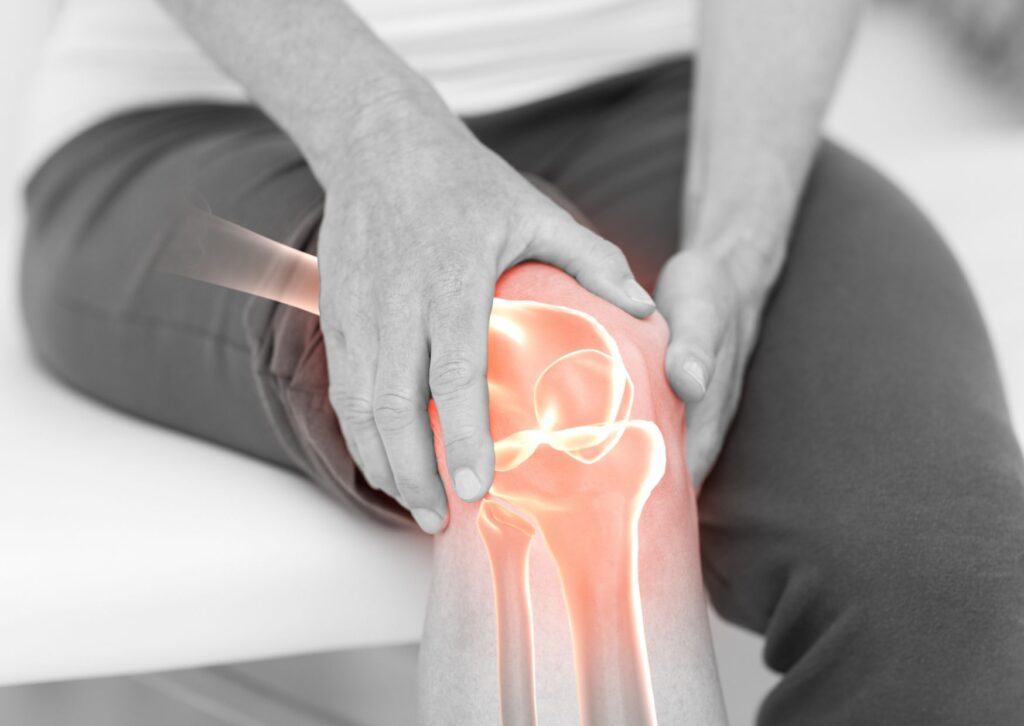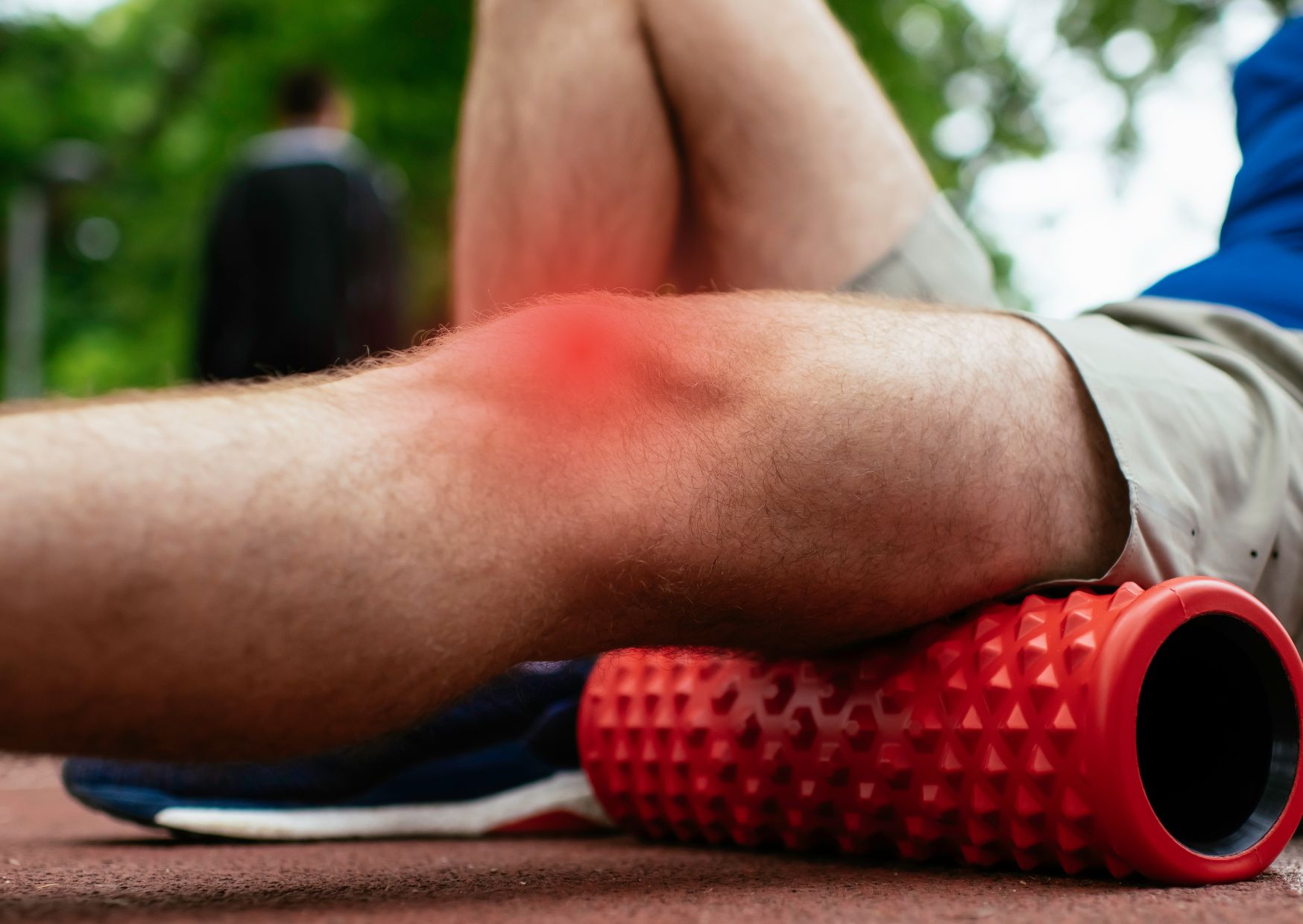Foam Rolling for Knee Pain
Knee pain is a common issue that can affect people of all ages.
It can be caused by a variety of factors, including overuse, injury, and underlying medical conditions.
Knee pain can range from mild to severe, and it can be acute (short-term) or chronic (long-term).
Symptoms of knee pain can include stiffness, swelling, and difficulty walking or bearing weight on the affected knee.
Treatment for knee pain may include rest, ice, physical therapy, medication, and in severe cases, surgery.
However, foam rolling has been shown to be a useful method to reducing some knee pain.
Disclaimer: It is important to consult with a doctor if you are experiencing knee pain to determine the cause and receive appropriate treatment.
Why Do We Get Knee Pain?
There is a range of reasons someone might experience knee pain. Some common causes of knee pain include arthritis, tendinitis, bursitis, and injuries to the ligaments or meniscus.
Knee pain can occasionally be caused by repetitive impact, overuse, restricted muscles and tightness
In some cases, knee pain can be the result of an underlying medical condition, such as gout or infection, although this is on the less likely side.
Repetitive impact on the knees can cause pain because the repeated impact can damage the soft tissues and structures in the knee, such as the cartilage, ligaments, and tendons.
It can also cause inflammation, which can lead to pain and discomfort.
Overuse can also cause knee pain. When your knees are overworked, they can become strained and inflamed, which can cause pain and discomfort.
It is important to take care of your knees and avoid overusing them, especially if you are engaging in activities that put a lot of strain on your knees, such as running or jumping.
It’s always best to consult your doctor if you’re experiencing persistent knee pain to determine the cause and receive appropriate treatment.

Foam Rolling for Knee Pain
Foam rolling can help reduce knee pain by improving flexibility and mobility in the muscles and connective tissue surrounding the knee.
This can help alleviate pressure on the knee joint and reduce the likelihood of pain or injury. It is important to use proper technique when foam rolling to avoid causing further irritation or damage to the knee.
It is also a good idea to consult with a healthcare provider before beginning any new exercise routine, especially if you have existing knee pain or injury.
Check out the videos below which provide some guidance on how to foam roll the knee area.
Foam Rolling the Quadriceps
Foam Rolling The Calves
Foam Rolling The Adductors
Foam Rolling The Hamstrings
Which Foam Roller Should You Use For Knee Pain?
When it comes to foam rolling for knee pain, it is important to choose a foam roller that is the right size and density for your needs.
A smaller, denser foam roller is generally better for targeting the muscles and tissue around the knee, as it allows for more precise pressure and massage.
A larger, softer foam roller may be more suitable for more general muscle relaxation and stretching. It is also important to consider the material of the foam roller.
Some foam rollers are made of high-density foam, which provides a firmer massage, while others are made of softer, low-density foam, which is gentler on the knees.
Ultimately, the best foam roller for knee pain will depend on your individual needs and preferences. It may be helpful to consult with a physical therapist or fitness professional to determine the best foam roller for your specific knee pain.
Having said that, a foam roller that we’ve used and found to work well is listed here.
Alternative Methods for Knee Pain
There are several alternative methods that can be used to treat knee pain, including:
- Physical therapy: A physical therapist can help design a treatment plan to reduce pain and improve knee function. This may include exercises to improve strength, flexibility, and range of motion.
- Acupuncture: This ancient Chinese technique involves inserting thin needles into the skin at specific points on the body to relieve pain.
- Massage therapy: Massage can help to relieve knee pain by reducing muscle tension and improving circulation. Massage therapies such as sports massage and deep tissue massage can be fantastic to reduce the muscle tension that may be causing your knee pain
- Chiropractic care: A chiropractor can provide manual adjustments to the knee to improve alignment and reduce pain.
- Heat and cold therapy: Applying heat or cold to the knee can help to relieve pain and swelling. Heat can be applied using a heating pad or hot water bottle, while cold can be applied using an ice pack.
It is important to note that alternative treatments should always be discussed with a healthcare provider before starting, as they may not be appropriate for everyone.

